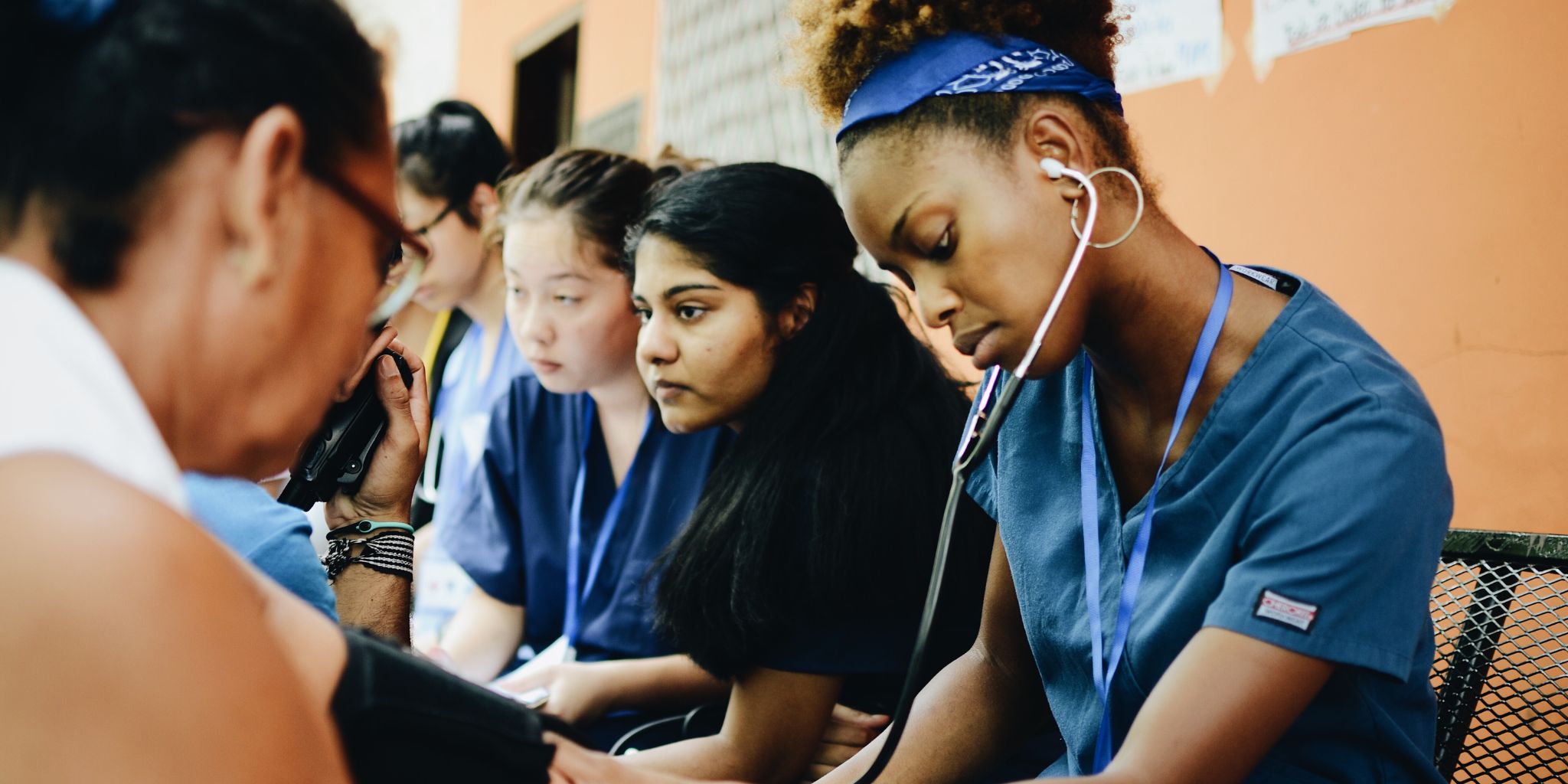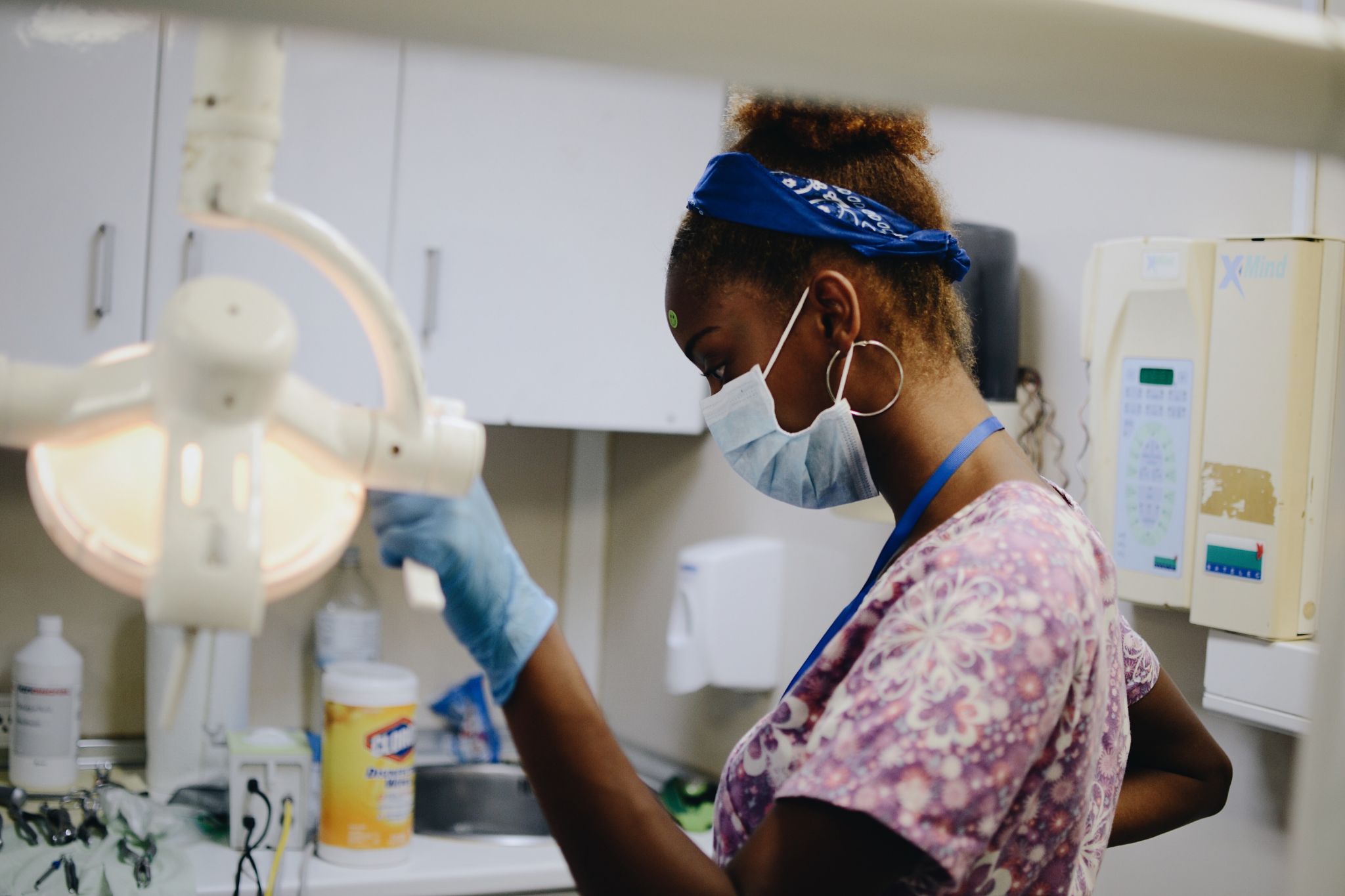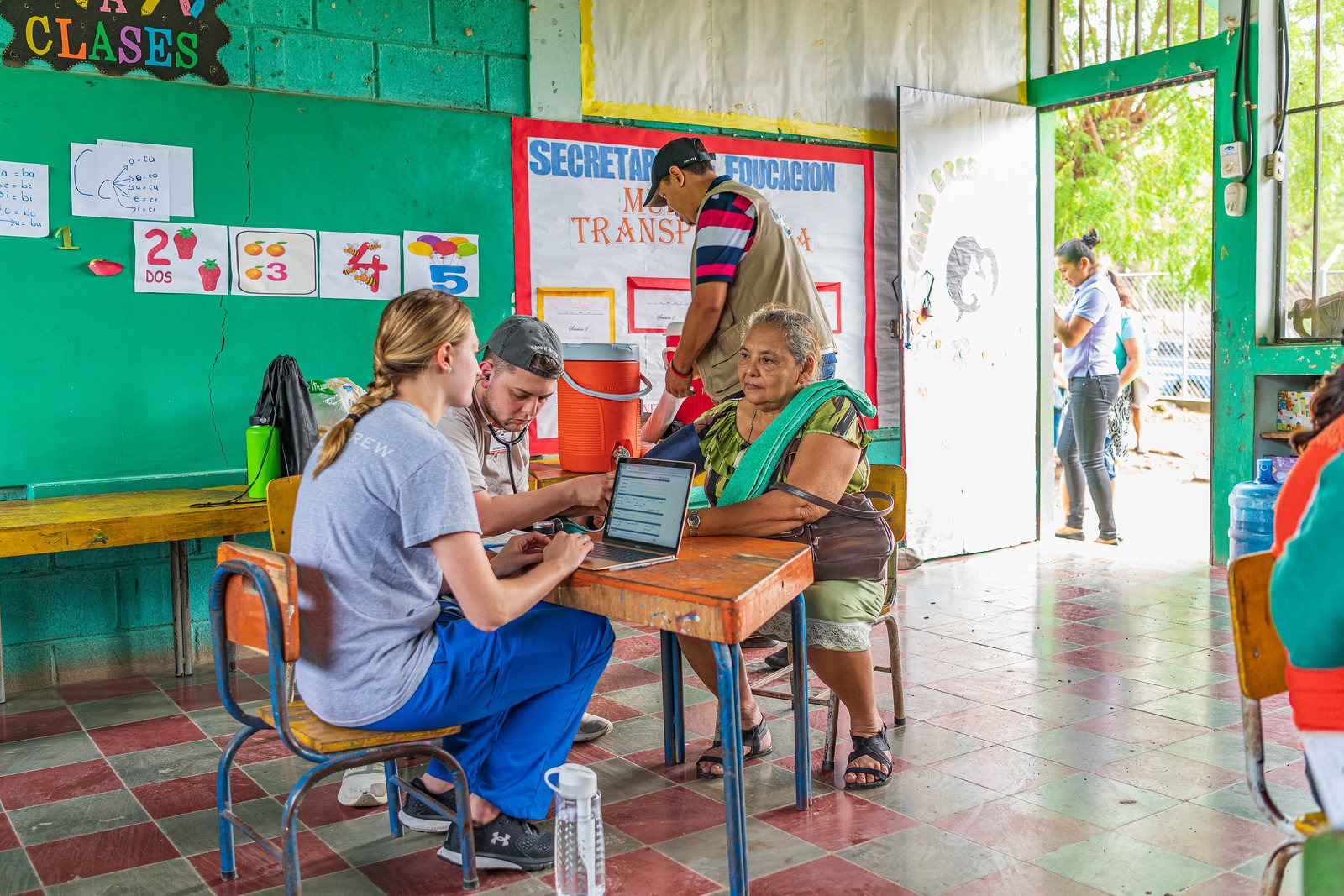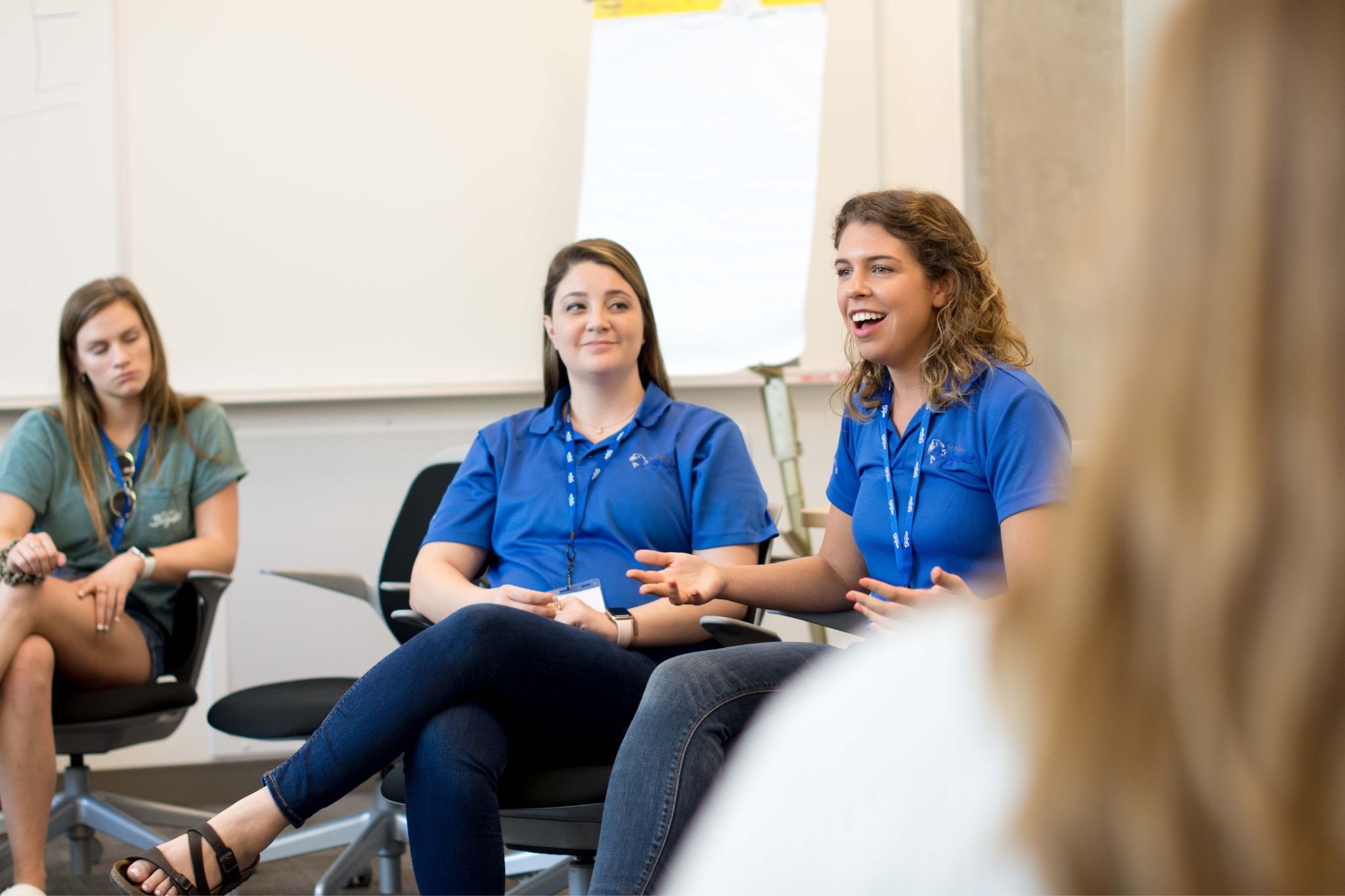Standing out to medical school admissions committees is every pre-med student’s intention. Extracurricular activities are a key part of making yourself stand out and a testament to your commitment, curiosity, and passion for the medical field.
Thoughtful extracurriculars help you develop a well-rounded skill set, provide valuable experience, and can even give you inspiration for why you’re pursuing medicine in the first place.
It can feel overwhelming to narrow down your choices. You’ll want to consider your interests, the impact of that experience on your learning and personal growth, and opportunities that can grow out of that experience.
We’ll guide you through the options available and provide insights on how each activity prepares you for a career in medicine while boosting that med school application.
1. Local Volunteering
Engaging in community service and local volunteering gives you an opportunity to give back to the area you live in. That concern for others’ well-being is a large part of why people become doctors in the first place.
Volunteer work can range from serving at a homeless shelter to tutoring high school students. Try to start volunteering as early as your first year of undergrad. If you’re seeking extracurriculars for high school students or filling in a gap year, local volunteering applies there, too.
Regarding how many volunteer hours you need for med school, candidates who want to stand out to admissions committees complete over 100 service hours. Focus on quality, long-term opportunities over an activity like being a soup kitchen volunteer for a day.
Volunteer experiences offer pre-med students opportunities to develop leadership experience and boost an understanding of communities' diverse needs while making a difference. If significant patient interactions are involved, volunteerism can also double as clinical experience.
2. International Volunteering
Volunteering internationally presents a memorable way to gain exposure to diverse healthcare systems and challenges. These experiences demonstrate altruistic qualities while providing a global perspective on healthcare.
Volunteering internationally allows you to engage with cultures and health challenges outside of your own comfort zone. Depending on the volunteer program, volunteering overseas may also qualify as clinical experience.
International volunteer experiences are a great way to get immersive extracurriculars over the summer, winter break, or spring break.
If you volunteer with organizations like Global Medical Brigades, your participation becomes a critical cog in the wheel for sustainable healthcare. Join us in supporting year-round facilities that provide care to our partner communities.
3. Patient Exposure
Good extracurriculars for nursing majors and pre-med students are connected to patient care. To be competitive in the application process, aim for at least 200 hours of patient exposure and clinical experience.
Here are a few examples of hands-on patient care opportunities, including paid work while you’re seeking your degree:
- Global Medical Brigades volunteers shadow medical professionals and work with patients firsthand in partner communities.
- Medical Scribes work alongside physicians, primarily in emergency departments, and document patient encounters.
- Emergency Medical Technicians (EMTs) provide immediate care to patients in emergency situations, which often involve life-saving procedures.
- Certified Nursing Assistants (CNAs) often work in nursing homes or assisted living facilities and provide basic care to patients.
- Phlebotomists draw blood from patients for laboratory testing in a role with direct patient interaction.
- Physical Therapy Aids work with patients in need of specialists in fields like sports medicine or orthopedics.
- Patient Care Technicians (PCTs) work under the direct supervision of a nurse, providing care such as monitoring vital signs.
- Home Health Aides provide care in patients' homes, assisting with daily activities and basic health-related tasks.
- Hospice volunteers offer end-of-life care and companionship to patients. Roles may also involve respite for caregivers and administrative tasks.
4. Shadowing
We’ve already mentioned physician shadowing as something we offer volunteers, but the Association of American Medical Colleges (AAMC) highly recommends it, too.
Each medical school will have a different number of hours they recommend. As a general guideline, 40-100 hours can make your AMCAS applications stand out. It’s always a good idea to shadow doctors in different specialties to hone in on the field of medicine that most interests you.
As telehealth continues to grow in popularity, virtual shadowing has also become an acceptable manner of physician shadowing.
Global Medical Brigades offers TeleBrigades for students who can’t travel but have the time to volunteer from their homes.
5. Research
Your GPA and MCAT score show your medical knowledge on paper, but medical research opportunities demonstrate that you can practice evidence-based medicine.
Research involvement, especially independent work outside the classroom, is very attractive to admissions officers. Research experience, whether in a lab as a research assistant or in the social sciences, displays curiosity, a desire for discovery, and problem-solving skills.
Students seeking research opportunities should check summer research programs, local hospitals, independent research projects, biotech/pharmaceutical companies, and clinical trials.
6. Internships
Healthcare-related internships provide a practical way for pre-med students to gain exposure to the medical field and confirm their interest in medicine. The best premed extracurriculars and internships are the ones that contribute to your personal and professional growth.
Examples of healthcare-related internships include:
- Hospital or Clinic Internships: These internships are for pre-med students in departments like emergency medicine, pediatrics, surgery, radiology, or administration.
- Public Health Internships: These may be at a local health department, nonprofit, government agency, or international organizations like the World Health Organization (WHO).
- Healthcare Consulting or Healthcare Administration Internships: These internships offer valuable experience for students interested in the management side of healthcare.
- Health Policy Internships: These are typically offered by government agencies, think tanks, or advocacy organizations, and allow students to explore policy in healthcare.
- Internships with Health Insurance Companies: These can offer a unique perspective on the healthcare system, with insight into the intricacies of health insurance and policy.
7. Leadership Roles
Leadership positions, whether within or outside the healthcare setting, are highly valued by admissions committees. Holding positions in student government, leading student organizations or clubs, or coordinating events at a local clinic can demonstrate organizational and communication skills.
Informal roles can provide a platform to exhibit your leadership skills, too. Becoming a teaching assistant or tutor can help you improve your mastery of a subject, introduce you to mentors outside of the medical field, and help others in the process.
If you’re looking for leadership opportunities to add to your AMCAS Work and Activities section as one of your most meaningful experiences, consider starting a Global Medical Brigade Chapter. As a Chapter President, you’ll gain leadership, volunteering, and healthcare experience that will serve you well in a future medical career.
8. Hobbies
Including hobbies in your public health extracurriculars highlights your interests beyond the medical field. Engaging in non-medical activities like playing a musical instrument, participating in sports, or painting can demonstrate your personality, talents, leadership abilities, and teamwork.
You can also use your personal statement to connect your passions outside of the medical field to skills that will transfer into your future medical career.
Choosing the Right Extracurriculars
When picking extracurricular experiences for medical school, focus on quality over quantity. It’s better to excel in and take value from a few activities than spread yourself too thin across many. Choose experiences that align with your passions and specialties you’re interested in.
If you’re interested in pediatrics, for example, find opportunities to shadow pediatricians or volunteer in children’s hospitals over exploring neurology. Engaging deeply in relevant activities, whether through your research or clinical exposure, looks good on medical school applications.
From local volunteering to research and leadership roles, all of these activities serve to develop your character, broaden your skill set, and deepen your understanding of the medical profession.
If you’re looking for experience in global health, wanting to boost your leadership skills, or seeking first-hand opportunities in patient care, consider joining a Global Medical Brigade. Partner with the work being done on the ground.
FAQs
How can I balance extracurricular activities with a pre-med coursework load?
Extracurricular activities provide an opportunity to showcase a genuine interest in medicine and a commitment to serving others. While not all schools verify every detail, it's possible that admissions officers may want to discuss your activities during an interview.
That said, it’s worth noting that extracurriculars are part of a complete application package for admissions committees. Your test scores, personal statement, letters of recommendation, and interviews are all equally important.
How can I balance extracurricular activities with a pre-med coursework load?
Balancing extracurriculars while you’re a full-time student requires careful planning. Prioritize academics, schedule study time, and reduce activities during peak periods like exams. Choose relevant activities that align with your medical goals and offer value.
Limit commitments to avoid spreading yourself too thin. This may require setting boundaries and communicating with group leaders about your priorities. Finally, prioritize self-care. Get plenty of rest, regular exercise, and eat right to avoid burnout.
What extracurriculars are necessary for applicants to MD/PhD programs?
Applicants to MD/PhD programs are applying to be both a physician and a researcher. While all the extracurriculars mentioned above are important, experience in research and clinical exposure shows admissions committees that you are ready to dedicate yourself to this type of career.
In general, 400+ hours of research experience is recommended for students applying to research-heavy medical schools. But for MD/PhD applicants, 1,500 or more hours is necessary to be competitive.








